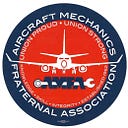An Ounce of Prevention
A collection of AFL-CIO affiliated unions serving the airline industry recently made a statement imploring airlines not to invest in shareholder dividend payouts or stock buybacks until operational and labor issues are resolved. This statement comes as the airlines approach the September 30th expiration of restrictions against dividends and buybacks tied to their receiving government bailouts during the pandemic.
AMFA- an independent craft/trade specific union representing Aircraft Technicians and related professional employees at five different airlines — would like to push this issue further. In the near term, most airlines seem to be committed to reinvesting the funds in their business, to acquire new assets, pay down debt and address customer and labor issues, and not pursuing dividend payments or stock buybacks. We hope the airlines will honor these publicly made commitments. The longer-term problem airlines are facing is how they avoid these issues in the future. When air travel dropped during the pandemic, the airlines instinctively reduced their workforce, resulting in early retirements and layoffs of some of the most skilled people in the industry. The challenges the industry is now facing are a direct result of this knee-jerk reaction. There are shortages of pilots, flight attendants, mechanics and other key people airlines need to effectively meet consumer demand. These skilled workers take years to hire, train, and develop expertise, which means the challenges airlines face today will not be solved anytime soon, although we are hopeful, we will see a gradual return to normalcy. The real question to be addressed is how can we prevent this issue from happening again? How can the difficult-to-replace skills be protected the next time the airline industry faces a reduction in revenue. This issue is especially relevant as consensus grows around the economy entering a recession at some point in the next 6–12 months.
We would like to call for management, government, and labor to jointly discuss the creation of an emergency fund to protect airline industry jobs during times of economic crisis. A fund of this nature could improve the long-term stability and resilience of our industry and enable us to serve the flying public without the avoidable issues we are all experiencing today. We believe it is long overdue that airline management begins to look at the business in a more proactive manner, as opposed to the typical reactive behavior they have historically relied on. While we don’t know when a crisis like the pandemic or a recession will happen again, we do know that it will happen again. Instead of sabotaging the future, perhaps we can be prepared to protect it so that a short-term problem doesn’t become a long-term one.
